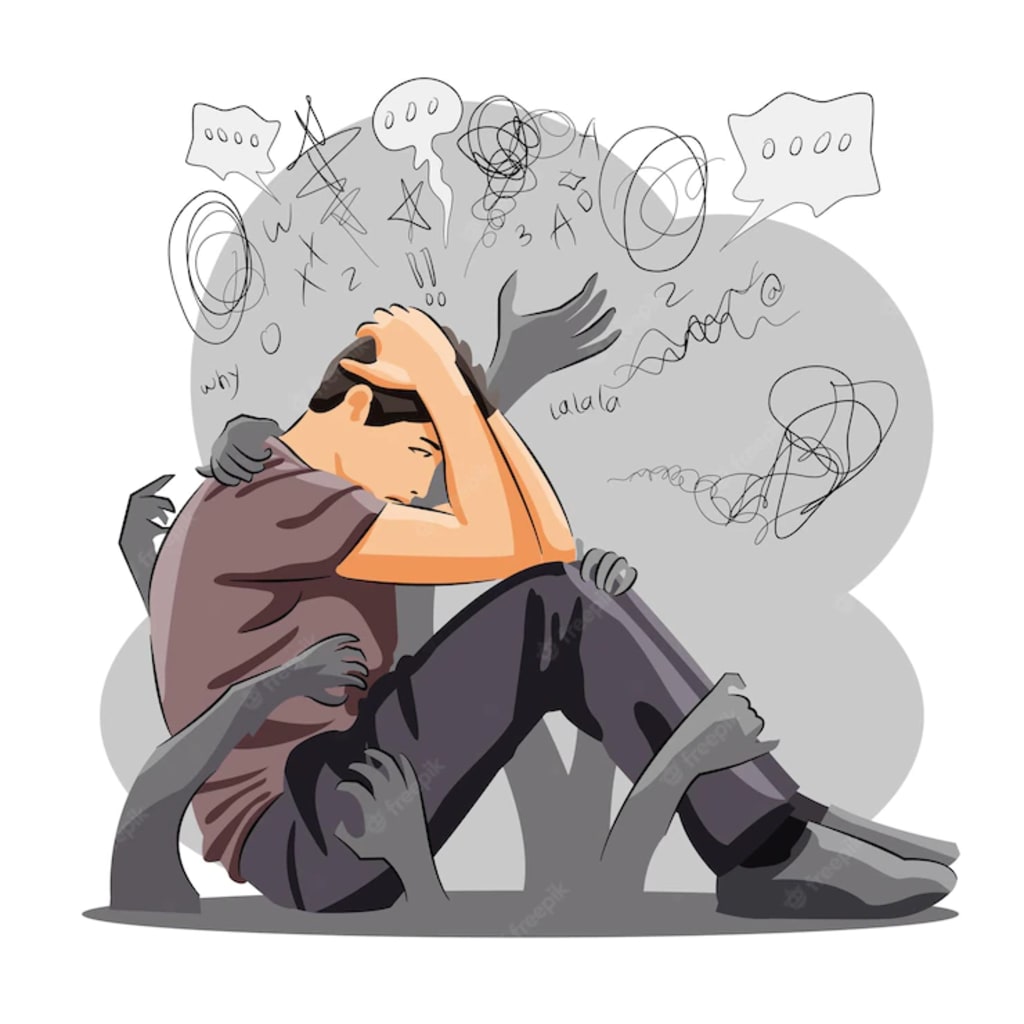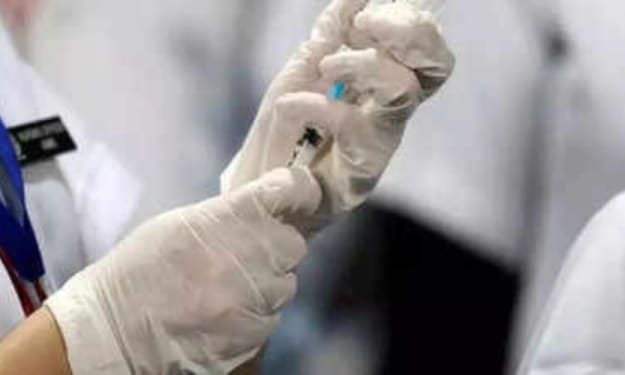Replace your stress by a calm mind
How to stay calm when you know you'll be stressed

A many times agone , I broke into my own house. I had just driven home, it was around night in the nothingness of Montreal downtime, I had been visiting my friend, Jeff, across city, and the thermometer on the frontal veranda read minus 40 degrees-- and do not bother asking if that is Celsius or Fahrenheit, minus 40 is where the two scales meet-- it was veritably cold. And as I stood on the frontal veranda fumbling in my pockets, I set up I did not have my keys. In fact, I could see them through the window, lying on the dining room table where I had left them. So I snappily ran around and tried all the other doors and windows, and they were locked tight. I allowed about calling a locksmith-- at least I had my cellphone, but at night, it could take a while for a locksmith to show up, and it was cold. I could not go back to my friend Jeff's house for the night because I had an early flight to Europe the coming morning, and I demanded to get my passport and my wallet. So, hopeless and nipping cold wave, I set up a large gemstone and I broke through the basement window, cleared out the shards of glass, I crawled through, I set up a piece of cardboard and taped it up over the opening, figuring that in the morning, on the way to the field, I could call my contractor and ask him to fix it. This was going to be precious, but presumably no more precious than a middle- of- the- night locksmith, so I figured, under the circumstances, I was coming out indeed. Now, I am a neuroscientist by training and I know a little bit about how the brain performs under stress. It releases cortisol that raises your heart rate, it modulates adrenaline situations and it clouds your thinking. So the coming morning, when I woke up on too little sleep, fussing about the hole in the window, and a internal note that I had to call my contractor, and the nipping temperatures, and the meetings I had forthcoming in Europe, and, you know, with all the cortisol in my brain, my thinking was cloudy, but I did not know it was cloudy because my thinking was cloudy. And it was not until I got to the field check- in counter, that I realized I did not have my passport. So I contended home in the snow and ice, 40 twinkles, got my passport, contended back to the field, I made it just in time, but they had given away my seat to someone differently, so I got stuck in the reverse of the aeroplane, coming to the bathrooms, in a seat that wouldn't slope, on an eight- hour flight. Well, I had a lot of time to suppose during those eight hours and no sleep. And I started wondering, are there effects that I can do, systems that I can put into place, that will help bad effects from passing? Or at least if bad effects be, will minimize the liability of it being a total catastrophe. So I started allowing about that, but my studies did not solidify until about a month latterly. I was having regale with my coworker, Danny Kahneman, the Nobel Prize winner, and I kindly embarrassedly told him about having broken my window, and, you know, forgotten my passport, and Danny participated with me that he would been rehearsing commodity called prospective hindsight. It's commodity that he'd gotten from the psychologist Gary Klein, who had written about it a many times before, also called thepre-mortem. Now, you all know what the posthumous is. Whenever there is a disaster, a platoon of experts come by and they try to figure out what went wrong, right? Well, in thepre-mortem, Danny explained, you look ahead and you try to figure out all the effects that could go awry, and also you try to figure out what you can do to help those effects from passing, or to minimize the damage. So what I want to talk to you about moment are some of the effects we can do in the form of apre-mortem. Some of them are egregious, some of them aren't so egregious. I will start with the egregious bones . Around the home, designate a place for effects that are fluently lost. Now, this sounds like common sense, and it is, but there is a lot of wisdom to back this up, grounded on the way our spatial memory workshop. There is a structure in the brain called the hippocampus, that evolved over knockouts of thousands of times, to keep track of the locales of important effects-- where the well is, where fish can be set up, that stage of fruit trees, where the friendly and adversary lines live. The hippocampus is the part of the brain that in London cab motorists becomes enlarged. It's the part of the brain that allows squirrels to find their nuts. And if you are wondering, notoriety actually did the trial where they cut off the olfactory sense of the squirrels, and they could still find their nuts. They were not using smell, they were using the hippocampus, this exquisitely evolved medium in the brain for chancing effects. But it's really good for effects that do not move around much, not so good for effects that move around. So this is why we lose auto keys and reading spectacles and passports. So in the home, designate a spot for your keys-- a hook by the door, perhaps a ornamental coliseum. For your passport, a particular hole. For your reading spectacles, a particulartable.However, your effects will always be there when you look for them, If you designate a spot and you are scrupulous about it. What about trip? Take a cell phone picture of your credit cards, your motorist's license, your passport, correspondence it to yourself so it's in thecloud.However, you can grease relief, If these effects are lost or stolen. Now these are some rather egregious effects. Flash back, when you are under stress, the brain releases cortisol. Cortisol is poisonous, and it causes cloudy thinking. So part of the practice of thepre-mortem is to fete that under stress you are not going to be at your stylish, and you should put systems in place. And there is maybe no more stressful a situation than when you are brazened with a medical decision to make. And at some point, all of us are going to be in that position, where we've to make a veritably important decision about the future of our medical care or that of a loved one, to help them with a decision. And so I want to talk about that. And I am going to talk about a veritably particular medical condition. But this stands as a deputy for all kinds of medical decision- timber, and indeed for fiscal decision- timber, and social decision- timber-- any kind of decision you have to make that would profit from a rational assessment of the data. So suppose you go to your croaker and the croaker says," I just got your lab work back, your cholesterol's a little high." Now, you all know that high cholesterol is associated with an increased threat of cardiovascular complaint, heart attack, stroke. And so you are allowing having high cholesterol is not the stylish thing, and so the croaker says," You know, I'd like to give you a medicine that will help you lower your cholesterol, a statin." And you've presumably heard of statins, you know that they are among the most extensively specified medicines in the world moment, you presumably indeed know people who take them. And so you are allowing," Yeah! Give me the statin." But there is a question you should ask at this point, a statistic you should ask for that most croakers do not like talking about, and pharmaceutical companies like talking about indeed lower. It's for the number demanded to treat. Now, what's this, the NNT? It's the number of people that need to take a medicine or suffer a surgery or any medical procedure before one person is helped. And you are allowing, what kind of crazy statistic is that? The number should be one. My croaker wouldn't define commodity to me if it's not going to help. But actually, medical practice does not work that way. And it's not the croaker 's fault, if it's anybody's fault, it's the fault of scientists like me. We have not figured out the underpinning mechanisms well enough. But GlaxoSmithKline estimates that 90 percent of the medicines work in only 30 to 50 percent of the people. So the number demanded to treat for the most extensively specified statin, what do you suppose it is? How numerous people have to take it before one person is helped? 300. This is according to exploration by exploration interpreters Jerome Groopman and Pamela Hartzband, singly verified byBloomberg.com. I ran through the figures myself. 300 people have to take the medicine for a time before one heart attack, stroke or other adverse event is averted. Now you are presumably allowing," Well, OK, one in 300 chance of lowering my cholesterol. Why not, croaker? Give me the tradition anyway." But you should ask at this point for another statistic, and that is," Tell me about the side goods." Right? So for this particular medicine, the side goods do in five percent of the cases. And they include terrible effects-- enervating muscle and joint pain, gastrointestinal torture-- but now you are allowing," Five percent, not veritably likely it's going to be to me, I will still take the medicine." But stay a nanosecond. Flash back under stress you are not allowing easily. So suppose about how you are going to work through this ahead of time, so you do not have to manufacture the chain of logic on the spot. 300 people take the medicine, right? One person's helped, five percent of those 300 have side goods, that is 15 people. You are 15 times more likely to be harmed by the medicine than you're to be helped by the medicine. Now, I am not saying whether you should take the statin or not. I am just saying you should have this discussion with your croaker . Medical ethics requires it, it's part of the principle of informed concurrence. You have the right to have access to this kind of information to begin the discussion about whether you want to take the pitfalls or not. Now you might be allowing I have pulled this number out of the air for shock value, but in fact it's rather typical, this number demanded to treat. For the most extensively performed surgery on men over the age of 50, junking of the prostate for cancer, the number demanded to treat is 49. That is right, 49 surgeries are done for every one person who is helped. And the side goods in that case do in 50 percent of the cases. They include incompetence, erectile dysfunction, urinary incontinence, rectal tearing, fecal incontinence. And if you are lucky, and you are one of the 50 percent who has these, they'll only last for a time or two. So the idea of thepre-mortem is to suppose ahead of time to the questions that you might be suitable to ask that will push the discussion forward. You do not want to have to manufacture all of this on the spot. And you also want to suppose about effects like quality of life. Because you have a choice hourly, do you I want a shorter life that is pain-free, or a longer life that might have a great deal of pain towards the end? These are effects to talk about and suppose about now, with your family and your loved ones You might change your mind in the heat of the moment, but at least you are rehearsed with this kind of thinking. Flash back, our brain under stress releases cortisol, and one of the effects that happens at that moment is a whole bunch on systems shut down.
There is an evolutionary reason for this. Face- to- face with a bloodsucker, you do not need your digestive system, or your libido, or your vulnerable system, because if you are body is expending metabolism on those effects and you do not reply snappily, you might come the captain's lunch, and also none of those effects matter. Unfortunately, one of the effects that goes out the window during those times of stress is rational, logical thinking, as Danny Kahneman and his associates have shown. So we need to train ourselves to suppose ahead to these kinds of situations. I suppose the important point then's feting that all of us are defective. We all are going to fail now and also. The idea is to suppose ahead to what those failures might be, to put systems in place that will help minimize the damage, or to help the bad effects from passing in the first place. Getting back to that snowy night in Montreal, when I got back from my trip, I had my contractor install a combination cinch next to the door, with a key to the frontal door in it, an easy to flash back combination. And I've to admit, I still have piles of correspondence that have not been sorted, and piles of emails that I have not gone through.
About the Creator
Asmae El assri
Embark on a captivating literary adventure Explore my stories on VM. Immerse yourself in wisdom, insight, and thrilling narratives that will ignite your imagination. Let words transport you to new realms of wonder. Join me! #ReadWithMe






Comments
Asmae El assri is not accepting comments at the moment
Want to show your support? Send them a one-off tip.